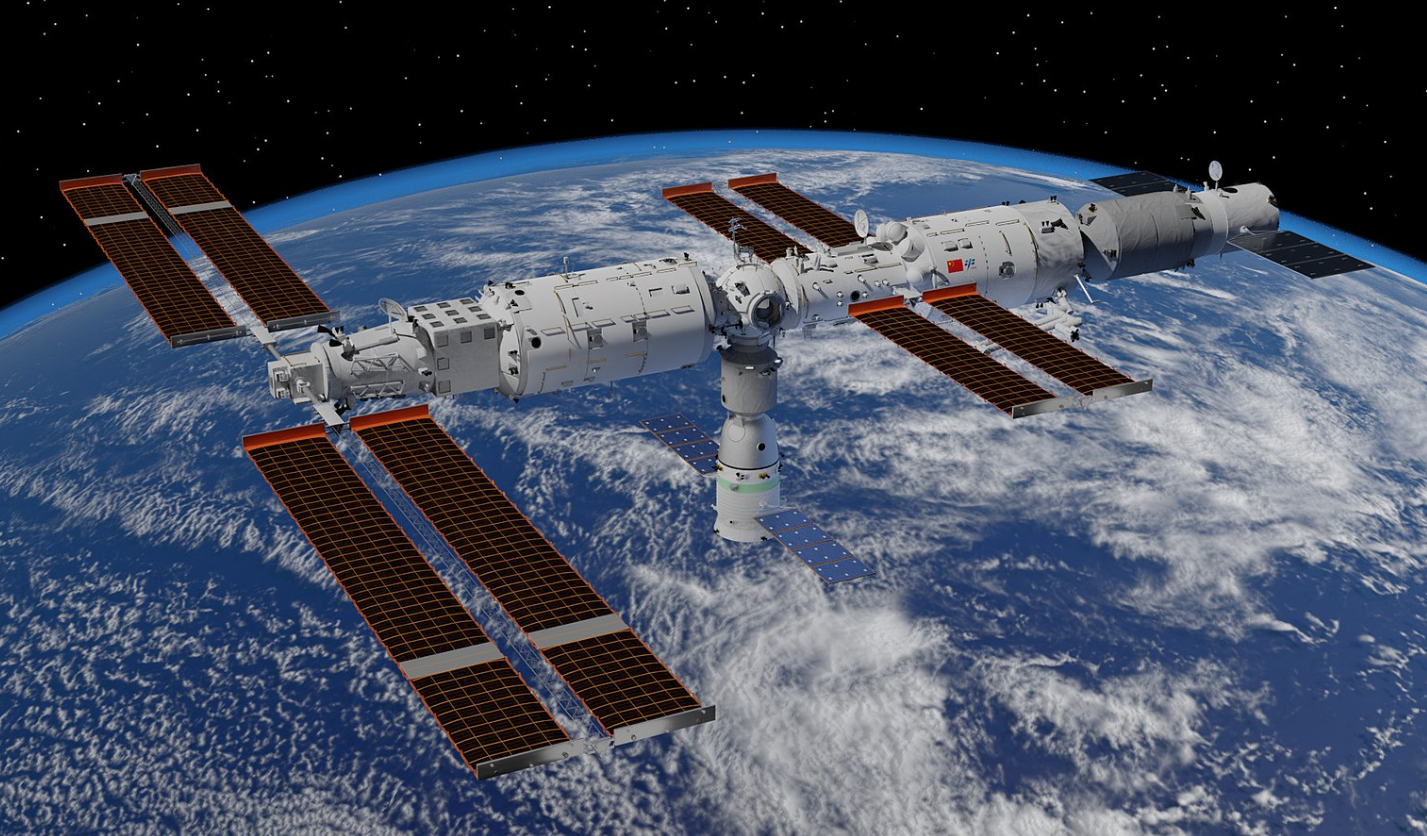Science
China’s Wukong Spacesuit Sets New Standard for AI in Space

China’s recent advancements in artificial intelligence (AI) have been underscored by the introduction of the Wukong spacesuit, which is designed to enhance operational efficiency during space missions. Named after the legendary figure Sun Wukong, also known as the Monkey King, the Wukong spacesuit incorporates advanced AI systems that offer real-time guidance and information, significantly improving the usability and performance of astronauts in challenging environments.
The Wukong spacesuit has made its debut as part of China’s efforts to further develop its capabilities in space exploration. The Tiangong Space Station, which serves as a critical research platform, has been identified as an ideal setting for testing this technology. Conducting spacewalks is a complex task that requires immediate and appropriate responses to an array of unpredictable situations. The capabilities demonstrated by the Wukong suit are seen as a vital step toward proving the practical applications of AI in space.
As AI continues to evolve, the current narratives surrounding its dominance often miss the mark. Many observers argue that terms such as “AI dominance” lack clear definitions, especially when contrasted with the ongoing development and operational strategies employed by organizations like NASA. While NASA has established a comprehensive AI program, its focus has primarily been on medical support rather than direct operational assistance in space missions.
The contrasting approaches of China and the United States in employing AI technologies highlight the need for a unified understanding of AI’s potential and limitations. The Wukong spacesuit exemplifies a move toward redefining what AI can accomplish in critical environments. It stands in stark contrast to the often simplistic portrayals of AI as mere chatbots or tools that rely heavily on human input for efficacy.
The implications of these developments extend beyond technical capabilities; they raise essential questions about the future of international collaboration in space exploration. With both nations advancing their technologies, a cooperative approach may yield significant benefits, allowing for shared insights and improved safety protocols in space.
As AI technology matures, it becomes increasingly evident that its true value lies in functionality and reliability. The Wukong spacesuit serves as a reminder that AI should be viewed as a critical tool, akin to fire or the wheel, rather than just another technological novelty. In the context of space exploration, where failures can have dire consequences, ensuring that AI systems are dependable is paramount.
In conclusion, the advancements represented by the Wukong suit could pave the way for a new era of AI applications in space missions. Both China and the United States have much to gain from focusing on collaboration rather than competition in this field. As stakeholders evaluate the future of AI in space, the emphasis must remain on achieving tangible results that enhance human safety and operational effectiveness.
-

 Education5 months ago
Education5 months agoBrandon University’s Failed $5 Million Project Sparks Oversight Review
-

 Science6 months ago
Science6 months agoMicrosoft Confirms U.S. Law Overrules Canadian Data Sovereignty
-

 Lifestyle5 months ago
Lifestyle5 months agoWinnipeg Celebrates Culinary Creativity During Le Burger Week 2025
-

 Health6 months ago
Health6 months agoMontreal’s Groupe Marcelle Leads Canadian Cosmetic Industry Growth
-

 Education5 months ago
Education5 months agoNew SĆIȺNEW̱ SṮEȽIṮḴEȽ Elementary Opens in Langford for 2025/2026 Year
-

 Science6 months ago
Science6 months agoTech Innovator Amandipp Singh Transforms Hiring for Disabled
-

 Technology6 months ago
Technology6 months agoDragon Ball: Sparking! Zero Launching on Switch and Switch 2 This November
-

 Business2 months ago
Business2 months agoEngineAI Unveils T800 Humanoid Robot, Setting New Industry Standards
-

 Technology3 weeks ago
Technology3 weeks agoDigg Relaunches as Founders Kevin Rose and Alexis Ohanian Join Forces
-

 Top Stories2 months ago
Top Stories2 months agoCanadiens Eye Elias Pettersson: What It Would Cost to Acquire Him
-

 Education6 months ago
Education6 months agoRed River College Launches New Programs to Address Industry Needs
-

 Business5 months ago
Business5 months agoRocket Lab Reports Strong Q2 2025 Revenue Growth and Future Plans
-

 Technology6 months ago
Technology6 months agoGoogle Pixel 10 Pro Fold Specs Unveiled Ahead of Launch
-

 Education6 months ago
Education6 months agoAlberta Teachers’ Strike: Potential Impacts on Students and Families
-

 Technology4 months ago
Technology4 months agoDiscord Faces Serious Security Breach Affecting Millions
-

 Business6 months ago
Business6 months agoBNA Brewing to Open New Bowling Alley in Downtown Penticton
-

 Lifestyle4 months ago
Lifestyle4 months agoCanadian Author Secures Funding to Write Book Without Financial Strain
-

 Business6 months ago
Business6 months agoNew Estimates Reveal ChatGPT-5 Energy Use Could Soar
-

 Business1 month ago
Business1 month agoNvidia and AMD CEOs Unveil AI Innovations at CES 2026
-

 Business4 months ago
Business4 months agoHydro-Québec Espionage Trial Exposes Internal Oversight Failures
-

 Top Stories4 months ago
Top Stories4 months agoPatrik Laine Struggles to Make Impact for Canadiens Early Season
-

 Business6 months ago
Business6 months agoDawson City Residents Rally Around Buy Canadian Movement
-

 Technology6 months ago
Technology6 months agoFuture Entertainment Launches DDoD with Gameplay Trailer Showcase
-

 Top Stories5 months ago
Top Stories5 months agoBlue Jays Shift José Berríos to Bullpen Ahead of Playoffs










